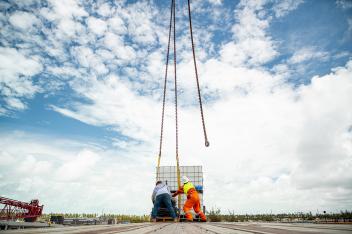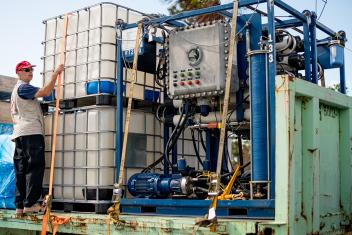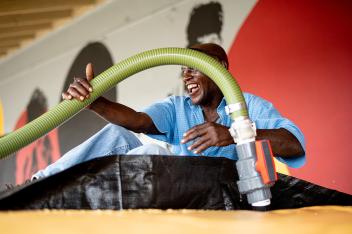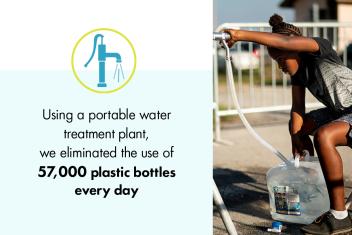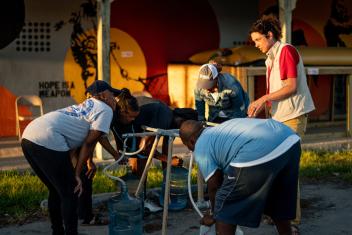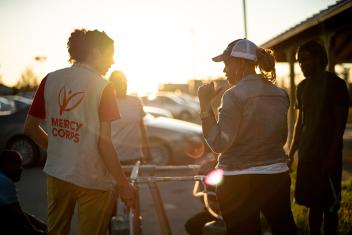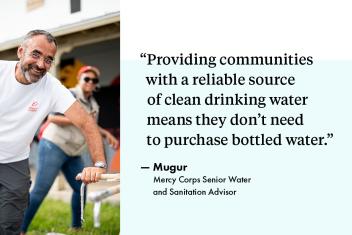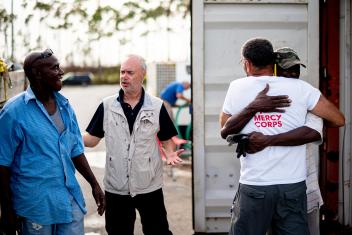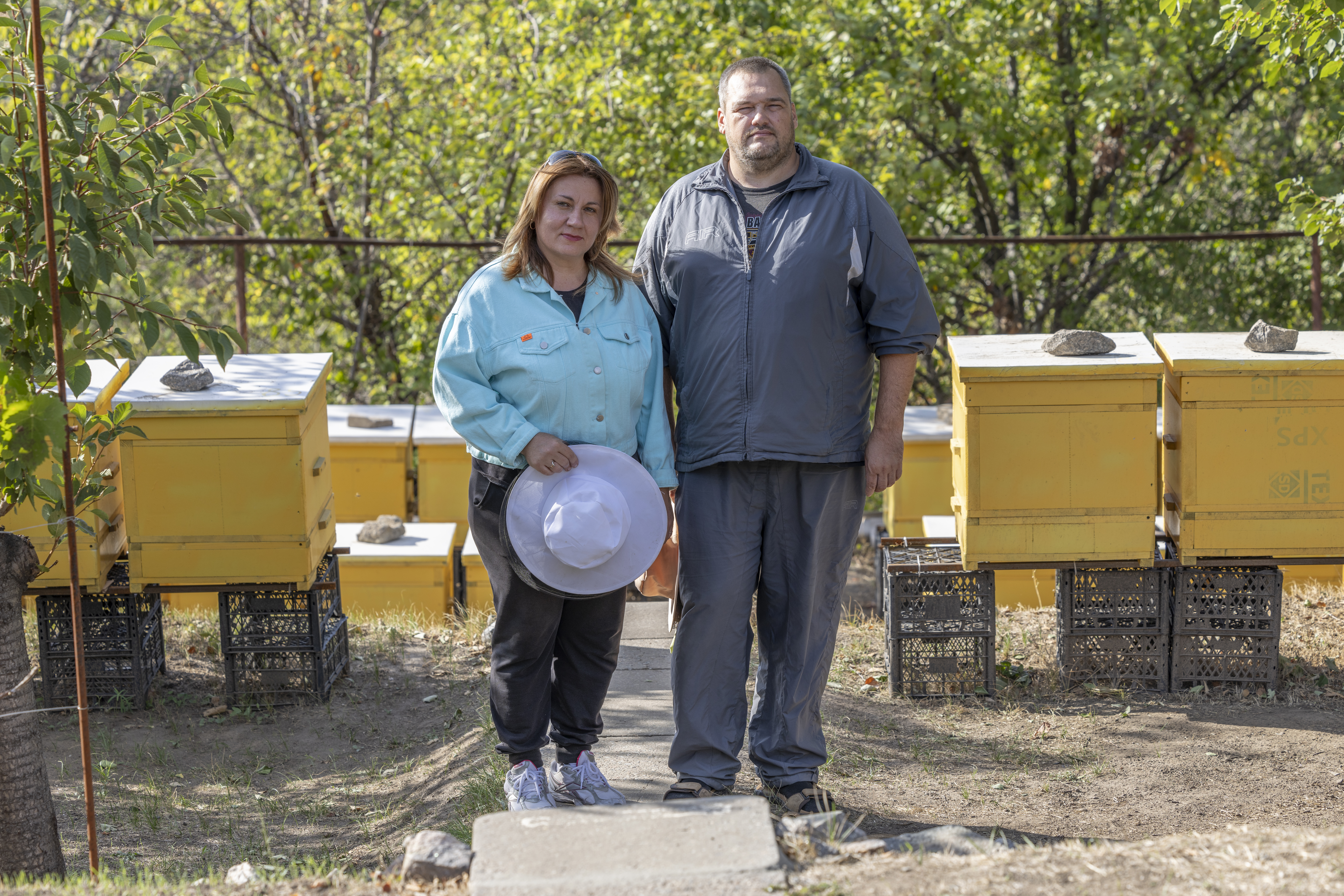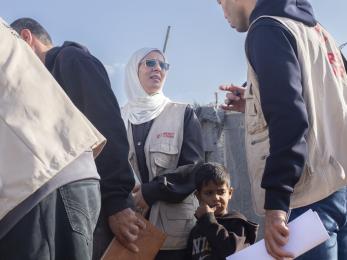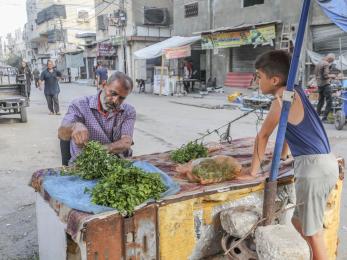Two months later: Supporting communities in The Bahamas after Hurricane Dorian
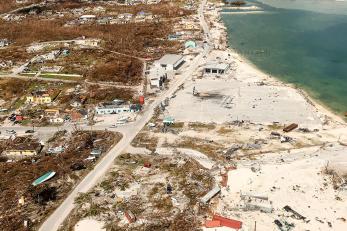
In just 48 hours, Hurricane Dorian devastated The Bahamas.
Schools were left without power. Homes filled with lifetimes of memories were reduced to debris. Life as tens of thousands of people knew it changed forever, all in two short days.
Hurricane Dorian, one of the strongest Atlantic hurricanes on record, hit The Bahamas on Sept. 1 as a Category 5 storm and left 50 dead, thousands missing and over 2,000 people in need of immediate support. Two large islands, Grand Bahama and Abaco, as well as smaller islands and keys surrounding them, were most heavily affected.
The aftermath of Hurricane Dorian
Electricity was completely down on Grand Bahama Island, but in Freeport and parts of the west end of the island it is slowly being restored, according to a local newspaper. Cell service — survivors’ primary means to connect with loved ones, learn about distributions of and reach emergency services — has returned but is reported to be spotty.
The main airport terminal on Grand Bahama Island was destroyed, making logistics for relief efforts a challenge for multiple humanitarian groups, including us.
"Everywhere you look, you could see the storm's destruction. There had been schools and police stations and clinics but nothing's left,” says Marjie Sackett, a Mercy Corps special advisor, describing the harder-hit eastern side of the island. “You can see through the few houses that remain, but in many spots all that was left to show someone had lived there was the building's foundation.” Community members tell us that their most pressing needs are for clean water, shelter and basic household items. In some more severe cases at the start of relief efforts, evacuations to another island were needed.
In the weeks following Hurricane Dorian, we connected people affected by the storm with immediate emergency support by delivering solar-powered lanterns, delivering locally-purchased essential items and connecting hurricane survivors with access to clean water.
We are delivering emergency kits to families in The Bahamas. The kits contain essential items that are helping thousands across Grand Bahama Island buy food and supplies, sanitize water, travel safely and prevent the spread of disease.
Providing clean water on Grand Bahama Island
Over 200 wells across Grand Bahama Island were flooded with seawater due to the storm surge, making water from the local aquifer unsafe for cooking, drinking and brushing teeth.
Without clean water, waterborne diseases can spread and wounds can go untreated, risking infection.
That’s why we teamed up with Mission Resolve Foundation to increase access to clean water to those in need with the installation of a water treatment plant, which uses reverse osmosis to treat water and make it suitable for drinking, cooking, bathing and other uses.
The plant is producing an estimated 7,500 gallons of clean water every day. It’s helping hurricane survivors save money on buying bottled water, and freeing up valuable room on aid vehicles delivering supplies.
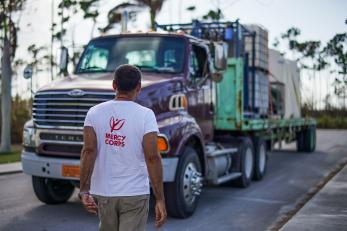
“Providing communities with a reliable source of clean drinking water means they don’t need to purchase bottled water,” says Mugur Dumitrache, senior water and sanitation advisor for Mercy Corps. “It’s not just that we want to reduce plastic waste — which is significant when an entire island is reliant on bottled water — but bringing in and trucking bottled water takes up urgently-needed space on planes, ships and on the roads at a time when so many other supplies are needed.”
Lighting the way
With the electrical grid knocked out by the storm, many people across Grand Bahama Island and the Abaco Islands faced a new challenge.
In addition to providing necessary lighting, the lanterns Mercy Corps team members distributed also have a built-in phone charger. Community members now have access to a reliable means of charging their essential devices, connecting with loved ones, and getting notifications about food and supply deliveries.
In order to bring light back to The Bahamas, we distributed over 500 solar lanterns to community members and families affected by Hurricane Dorian.
An additional 70 lanterns were distributed to a hospital, a health center and the smaller island of Little Abaco, which was also heavily affected by the storm. Lighting provides hospital and clinic staff with the key visibility they need to provide safe, accurate assistance to their patients.
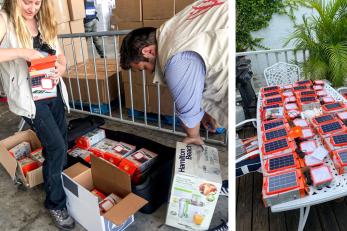
The future of The Bahamas’ recovery
Even islands that were unaffected by Hurricane Dorian are feeling the aftershocks of the storm through economic hardship. The Bahamian economy relies heavily on the tourism industry. The late summer, early fall season is already a slow time — long past the December to early April peak tourism season.
Our field team, the Bahamian Port Authority and other humanitarian organizations are working around the clock to meet the humanitarian needs of families and communities as they begin to recover. The road to recovery is only just beginning.
“We’ve got a long way to go before normal life can resume because people have enough access to water,” says Allison Dworschak, Humanitarian Program Advisor. “Looking forward, we need to get the systems that are broken working, get the systems that are coming in set up. It’s a pretty collaborative process.”
The Bahamas field team has goals for the short term and the long term. In the short term, their goal is to meet immediate needs of households, health clinics and schools. In the long term, they hope to support businesses and to help get the economy running again, according to Allison.
As we enter the third month of rebuilding and recovery, we’re optimistic that we can help The Bahamas recover and set the foundation for a stronger tomorrow. We’re determined to continue to support The Bahamas as they rebuild after the devastation of Hurricane Dorian.
